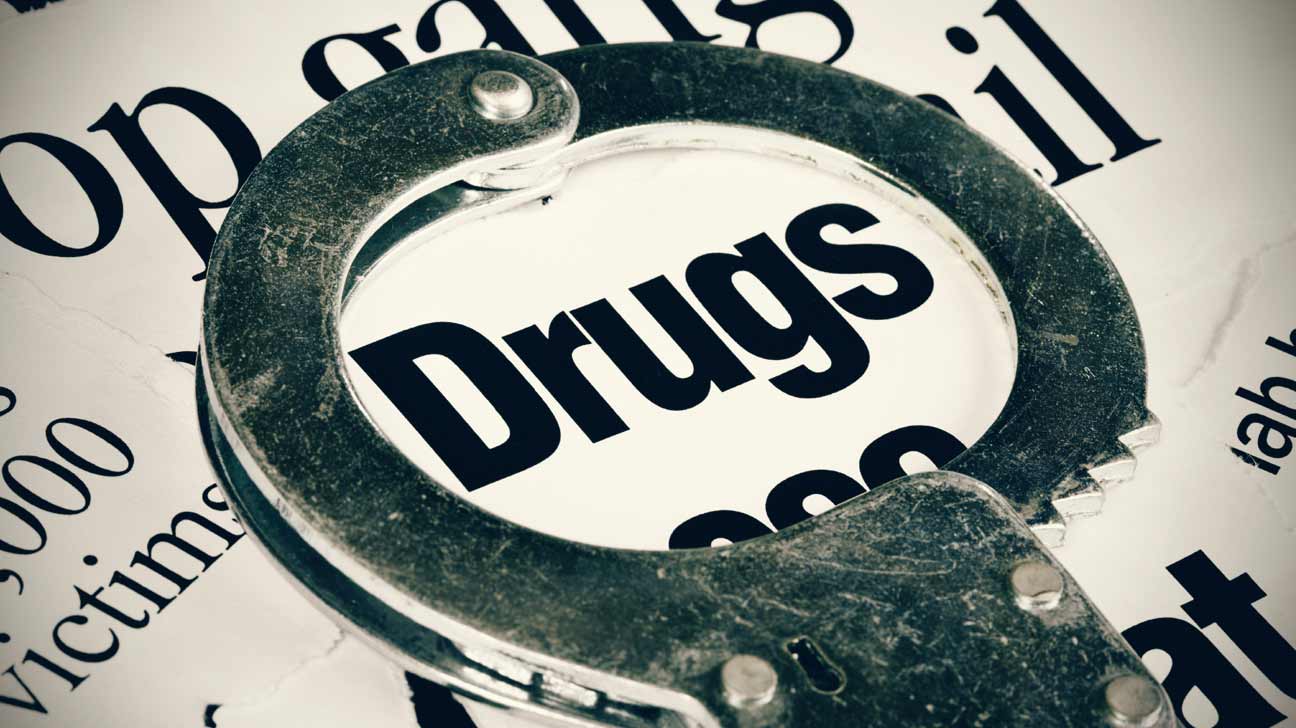Written by Ian Tartt
Libertarians frequently talk about ending the War on Drugs.
As a result, they’re often accused of opposing the War on Drugs merely because they want to get high without risking prison time. While this may be true for some, the majority of libertarians oppose the War on Drugs for other reasons, reasons which will be explored in the remainder of this article.
The primary reason libertarians oppose the War on Drugs is because they believe that you should be able to consume anything you want, even if it’s bad for you. This includes, but is not limited to, fast food, dessert, soft drinks, alcohol, tobacco, and even illegal drugs. As a result, libertarians believe that you should not be punished for putting something into your body, whether that substance is legal or illegal. This fits in nicely with both the US Constitution, which gives no authority to the federal government to prohibit drugs, as well as ideas of small or limited government. Those who believe that government is far too big should oppose the War on Drugs and its $50 billion annual price tag, the amount of control it gives the federal government over state and local governments, and the sheer number of people imprisoned for nonviolent offenses. If you believe in smaller government, then you should oppose the War on Drugs.
Another problem caused by the War on Drugs is that it has made policing more violent. While some may say that this is necessary for the police to confront drug cartels, that’s not always what ends up happening. Far too many people have learned this the hard way; this includes the innocent people who are shot and killed when police invade their homes by mistake when they thought they were invading the home of a drug dealer or gang member, and the kids who are severely injured when flashbang grenades explode near them. You might think that this could never happen to you, but that’s probably what the victims of these tragedies thought until they experienced them. The simplest way to reduce police violence is to reduce the frequency with which police interact with civilians, and the best way to accomplish that is to end the War on Drugs.
How would you feel if your money, your car, or even your house were taken from you against your will? Now how would you feel if this were done by the police, they did it legally, and you had little to no recourse to get your property back? This is the controversial yet widely-used practice of civil asset forfeiture, which has become increasingly more popular because of the War on Drugs. In short, this is when the police seize property from someone they suspect has broken the law. They can do this without charging anyone with committing a crime or taking them to court. Civil asset forfeiture has become popular among police because it allows them to acquire more money and resources. If someone wants to get their property back, they have to fight it out in court. This involves proving that they weren’t involved in criminal activity (which is the antithesis of “innocent until proven guilty” and frees the police from having to prove that they accused are guilty) in addition to expensive court costs. As a result of those obstacles, many people opt to not pursue that course of action, meaning they never recover their stolen property.
But the problems caused by the War on Drugs don’t end there. Many people who end up in prison due to being caught with illegal drugs find it impossible to get a job or resume their normal lives once they’re released. Having a felony on their record, being isolated so long from their friends and family members, and being surrounded by violent inmates for many years causes many of them turn to violent crime to make ends meet. Thus, the War on Drugs turns peaceful people into violent criminals, creating a cycle of violence in which violent crime continues far higher than it would if prohibition were ended.
The same problems that have arisen from the War on Drugs happened during Prohibition: an increase in organized crime due to the profit motive for selling illegal goods; horrific violence between gang members, police, and civilians; millions of people becoming criminals simply for getting caught participating in nonviolent activities that were once perfectly legal; and massive amounts of resources spent by the government on trying to solve problems that it either created or exacerbated. The War on Drugs is the modern form of Prohibition, only much worse. Prohibition lasted a little over a decade, so the suffering it caused had a relatively short lifespan. In comparison, the War on Drugs has gone on for over 40 years now, meaning that it has caused suffering for several generations of people (the youngest of whom don’t even know what society was like before the War on Drugs began, a problem that didn’t exist with Prohibition due to its much shorter life). Ending Prohibition took power and profit away from bootleggers and put an end to the problems it created, and ending the War on Drugs would have the same effect on its own problems, including taking power and profit away from drug cartels; just as most people prefer to buy alcohol from a bar or liquor store instead of a stranger selling a suspicious concoction made in their bathtub, so to would most people prefer to buy drugs from a pharmacy or dispensary instead of a shady street dealer.
If you use medicine for relief from pain or sickness, you probably appreciate having it as an option. But what if you couldn’t get effective medicine or you were limited to medicine which caused more harmful side effects than you’d like? That’s the problem faced by people who turn to opioids for pain management because they can’t get marijuana legally. The situation is more serious than it might sound at first since opioid can be fatal at certain does. There is an alternative, though, as states where marijuana is legal for medical purposes have fewer people dying from opioids than states where marijuana is illegal. Colorado specifically saw a reversal in rising opioid deaths after marijuana was legalized for recreational and medical purposes. Both marijuana and opioids can be used as effective pain relievers, but marijuana has far fewer negative side effects than opioids, including no possibility of fatal overdose, and is therefore a more appealing option for many people. Laws prohibiting a substance that can provide people with effective pain relief are cruel, and if there is in fact a direct link between the availability of legal marijuana and the number of opioid deaths, then this is just one more way that the War on Drugs kills people.
Of course, politicians caught using illegal drugs rarely get anywhere near the level of sentencing civilians in the same position receive. The same is true for their children, who benefit tremendously from their parents’ political connections and often manage to get away with minimal penalties even after getting caught with hardcore drugs. Since these politicians often support draconian drug laws and harsh punishments for people who get caught with illegal drugs, should they accept the punishments they support giving to other people, or should they instead stop putting nonviolent people in prison and work toward ending the War on Drugs?
None of this is meant to suggest that drug abuse is a good thing. There are many dangerous drugs which can cause severe negative health effects or even kill people who use them. However, that applies to legal drugs as well. Each year, over 80,000 people die from alcohol use and over 480,000 people die from smoking cigarettes; the fact that only certain drugs are outlawed while many other drugs, some of which are even more harmful than illegal ones, are perfectly legal is why some people call it the war on some drugs. Yet despite the harm they cause, there have been no successful movements advocating the criminalization of alcohol since Prohibition, and government tobacco subsidies totaled almost $2 billion over the past couple of decades. In the case of alcohol, most people either remember or have read about how terrible the consequences of Prohibition were, and as such they oppose criminalizing alcohol despite the negative effects of its use. Once the War on Drugs is ended, perhaps future generations will look back on it the same way current generations look back on Prohibition.
Supporters of the War on Drugs will often point out people who are addicted to drugs, commit violent crimes while under the influence of drugs, and other negative things as reasons to keep drugs illegal; they’ll then say something along the lines of “If this is how bad things are with those drugs being illegal, so just imagine how much worse it would be if they were legal.” But in reality, all they’re doing is pointing out negative things that are occurring under the War on Drugs. They never provide evidence for widespread societal problems originating from drugs before the War on Drugs began. There were likely issues arising from those drugs before the War on Drugs began (just as there were issues with alcohol before Prohibition), but if the issues with legal drugs were as monumental as they’re made out to be, where is the evidence for it? Outside of propaganda intended to deceive people into accepting drug laws (much of which was based on racist sentiment as Ethan Nadelmann explains in this TED Talk), where is the documented evidence of widespread societal problems from drugs? Even if there were such problems with legal drugs, were they worse than the problems that have been created by the War on Drugs?
With all of this in mind, what would happen if the War on Drugs were ended? For starters, you would no longer have to fund an expensive government program that’s hurt countless people and failed to accomplish any of its stated goals. Your taxes could be lowered and you could then use more of your own money to take care of yourself and your loved ones. Maybe you’d save that money for retirement, put some aside for a rainy day, go on a nice vacation, or donate to a good cause; whatever you’d end up doing, it would be your decision to make with your money. Additionally, you would be much less likely to be a victim of violent crime and you’d be more secure in your person and property. Drugs could be held to higher standards so fewer people would get sick or die from using them, anyone could use whatever drugs they find helpful for medical purposes without fear of criminal penalties, and drug users who want to quit would be able to seek effective treatment (like the treatments available for alcoholics and smokers who want to quit). We’ve seen what almost half a century of the War on Drugs looks like, so rather than keep trying the same thing repeatedly and expecting different results, let’s try something different. Let’s try ending the War on Drugs. Let’s try leaving people alone unless they’re actively hurting someone else. Let’s try following the Constitution and making America a free country again. In other words, let’s try freedom.





1 comment
… [Trackback]
[…] Find More here on that Topic: thelibertarianrepublic.com/heres-why-the-war-on-drugs-needs-to-end-now/ […]